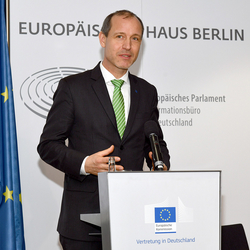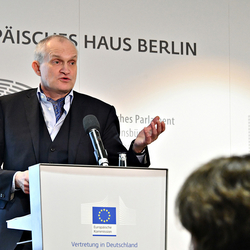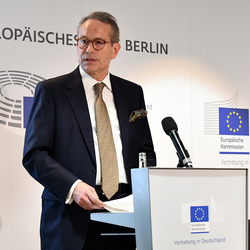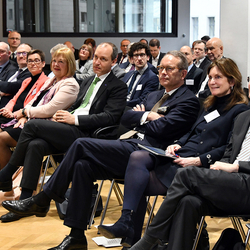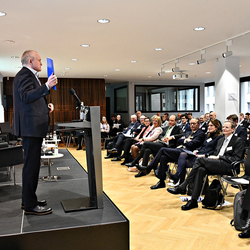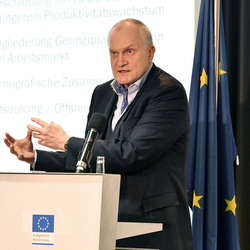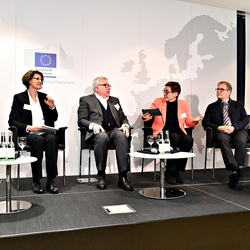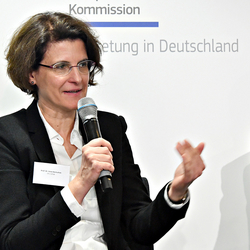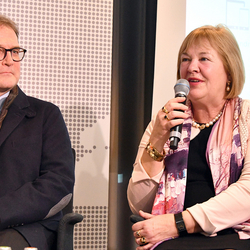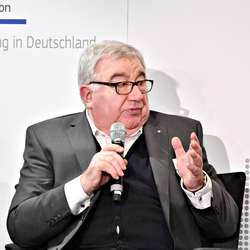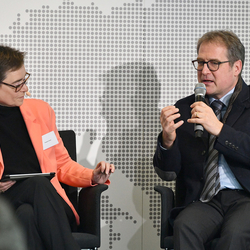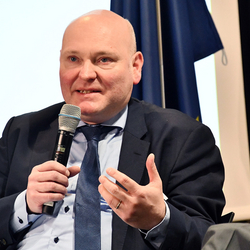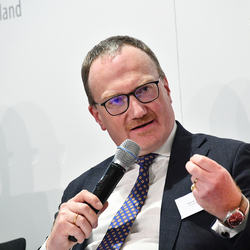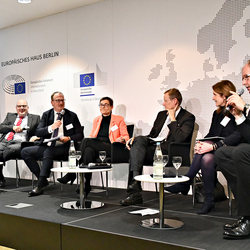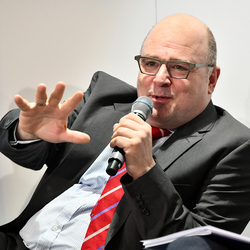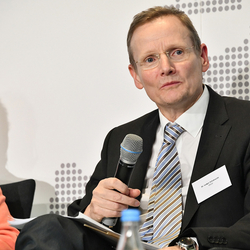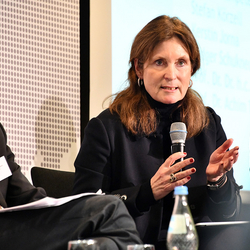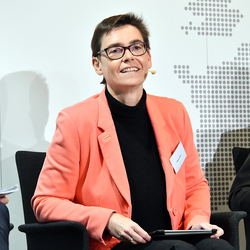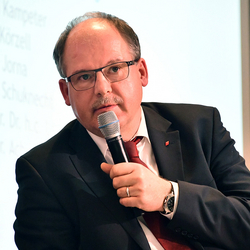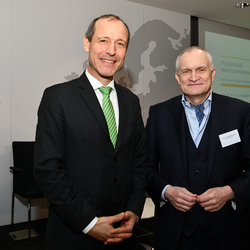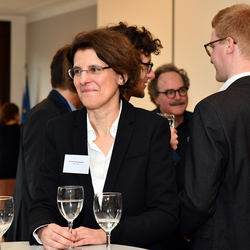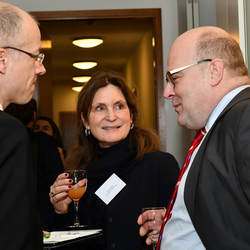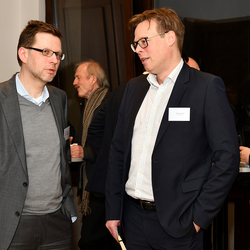National Productivity Dialogue
Productivity: Improving conditions for growth
A full house and lively discussions: On 10 February 2020, representatives from politics, business and academia met in Berlin for the first National Productivity Dialogue to discuss productivity trends in Germany. The objective of the dialogue was to explore the implications for economic policy and to share ideas for better conditions for growth. The German Council of Economic Experts organised the Productivity Dialogue together with the European Commission in Berlin. Dr. Jörg Wojahn, representative of the European Commission in Germany, welcomed the guests to the first National Productivity Dialogue in Germany and in Europe.
Productivity is crucial for long-term prosperity. In the opening speech, State Secretary Dr. Ulrich Nussbaum emphasised the need to raise the economy’s growth potential, in particular by increasing investment and incentives for entrepreneurial activity.
Presenting the first productivity report of the German Council of Economic Experts, published in the Annual Report 2019/20, the Chairman of the Council, Christoph M. Schmidt, described that in almost all developed economies productivity growth rates have been declining. This is surprising given omnipresent technological innovations and increasing digitalisation. The delayed use of new technologies may play a role in explaining this so-called productivity paradox. In addition, the dynamics are declining with which established companies are replaced by newly founded companies one of the key drivers of productivity growth. One possible explanation is the increasing ageing of society, which could on the one hand delay the application of new, digital technologies and on the other hand reduce the business creation rate.
The framework conditions for innovation were the topic of the first panel discussion with Prof. Dr. Irene Bertschek, Parliamentary State Secretary Bettina Hagedorn, MdB, Prof. Dr.-Ing. Dieter Spath, Prof. Dr. Dr. h.c. Christoph M. Schmidt and Prof. Volker Wieland, Ph.D.. The discussants shared the opinion that in addition to innovations as such, their implementation in companies is of great importance. The employees’ ability to apply new technologies makes investments in these technologies worthwhile. For this reason, training of a skilled labour force and further development of digital skills is becoming increasingly important. The question that arose during the discussion was to what extent the state, the companies or the employees themselves are responsible for the development of these skills. Furthermore, the discussion touched on the implications of digital business models and the increasing linking of services and products for value creation in German companies.
The second panel Germany's international competitiveness in relation to its productivity developments with Steffen Kampeter, Stefan Körzell, Kerstin Jorna, Dr. Ludger Schuknecht, Prof. Dr. Dr. h.c. Lars P. Feld and Prof. Dr. Achim Truger focussed on the various challenges that Germany and Europe are facing: a New Green Deal, the shaping of structural change and intensified international tax competition. From different points of view, the participants discussed, for example, how much government involvement is needed and how the framework conditions for higher private investment can be improved.
It became clear that a revival of the weak productivity dynamics would be crucial to master the many challenges in the future. The exchange on productivity will continue at both the German and European level. The German Council of Economic Experts, as the National Productivity Board, will accompany this process and establish the Productivity Dialogue as a regular platform. The programme of the National Productivity Dialogue 2020 is available in German here.


